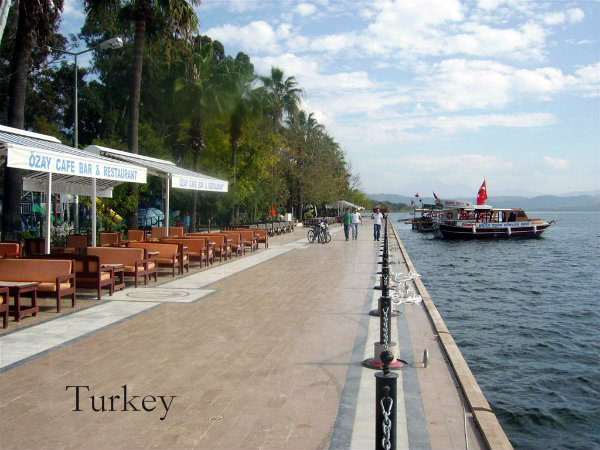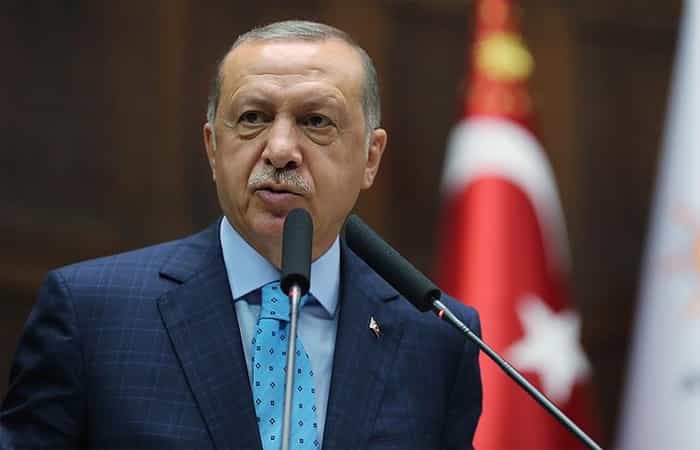IMF says Turkish economys slows down to sustainable growth rate
International Monetary Fund has released a report saying “the Turkish economy has slowed to a more sustainable 3 percent growth rate this year”.
Earlier in November financial accreditation agency Fitch had upgraded Turkey’s economic outlook from BB+ to BBB-. This had been good news long awaited by the Turkish business environment.
On account of this favorable development for the Turkish economy the country had started to look at the future even more positively in terms of a substantial flow of foreign funds for investments.
The report released by IMF has not been up to Turkey’s expectations most expert have commented but on the other hand many have said it has been a good friendly warning for the Turkish economy as well.
The report is as follows;
IMF Executive Board Concludes 2012 Article IV Consultation with Turkey
Public Information Notice (PIN) No. 12/130
November 20, 2012
Public Information Notices (PINs) form part of the IMF’s efforts to promote transparency of the IMF’s views and analysis of economic developments and policies. With the consent of the country (or countries) concerned, PINs are issued after Executive Board discussions of Article IV consultations with member countries, of its surveillance of developments at the regional level, of post-program monitoring, and of ex post assessments of member countries with longer-term program engagements. PINs are also issued after Executive Board discussions of general policy matters, unless otherwise decided by the Executive Board in a particular case.
On November 16, 2012, the Executive Board of the International Monetary Fund (IMF) concluded the Article IV consultation with Turkey.1
Background
After growing well above trend in 2010 and 2011, the Turkish economy has slowed to a more sustainable 3 percent growth rate this year. Growth has also become more balanced, as domestic demand and imports decelerated on the back of tighter monetary and macro-prudential policies implemented in 2011, while exports continue to perform well thanks to successful diversification towards new markets. In November, Turkey was upgraded to investment grade by one credit rating agency.
Slower and more balanced growth is helping to unwind imbalances. The current account deficit has shrunk significantly, by 33 percent year-on-year in the year to August. Inflation, both headline and core, is also coming down from its peak in early 2012, though recent increases in indirect taxes and administered prices have boosted it temporarily and could further undermine competitiveness.
The primary budget surplus so far in 2012 has fallen significantly relative to the same period last year. The budget target for the year is expected to be missed, notably because of spending overruns in the areas of personnel, health, and capital spending. The banking system remains well capitalized, with capital ratios at more than 16 percent and well above regulatory minima, and not materially impacted by the introduction of Basel II and II.5. Profitability is strong, and Non-Performing Loans (NPLs) remain near historic lows despite a minor uptick in recent months.
Executive Board Assessment
Executive Directors commended the Turkish authorities for setting the stage for more sustainable and balanced growth in 2012, accompanied by declines in the current account deficit and inflation. Directors noted that the outlook is clouded by external uncertainties, and that Turkey remains vulnerable to shifts in market sentiment, given the country’s still large external financing needs. Policy priorities thus need to remain geared toward a continued unwinding of imbalances. Raising domestic savings and enhancing the economy’s potential are important objectives over the medium term.
Directors welcomed the tighter fiscal policy stance proposed in the 2013 budget, turning around the pro-cyclical stance of this year and contributing to a more balanced policy mix. They underlined the importance of containing growth in current spending, including the wage bill, while protecting priority infrastructure investment. Directors welcomed ongoing measures to broaden the tax base, enhance tax administration, and improve budget flexibility. Further efforts, particularly on spending reforms, would be needed to achieve the desirable level of the primary surplus. Directors viewed the medium-term fiscal program for 2013-15 as a welcome step in the right direction.
Noting that inflation remains above the target band and inflation expectations stay elevated, Directors recommended that the central bank adopt a more forward-looking monetary policy stance and closely monitor developments in domestic demand, wages, and capital flows. They recognized the challenging environment in which the monetary policy framework operates, with its objectives of both price and financial stability. Many Directors saw merit in returning to a positive real policy rate under a conventional inflation-targeting framework, supported by a strengthened communication policy. A number of Directors considered that, in the current environment of volatile capital flows, the more flexible policy framework has served the Turkish economy well. In order to manage risks from excessive short-term capital inflows, many Directors saw scope for greater use of sterilized intervention, given the relatively low level of international reserves, complemented with macro-prudential measures.
Directors commended the authorities for progress in improving the health of the financial system and the supervisory and regulatory framework, along the lines of the 2011 FSAP Update. They noted that banks appear well-positioned for the introduction of Basel III, ahead of schedule. Directors encouraged continued vigilance and a broadening of macro-prudential tools to mitigate risks to banks’ balance sheets. They looked forward to swift action to address deficiencies in the AML/CFT legal framework.
Directors observed that the savings rate had fallen significantly over the past decade. While welcoming the recent reform of private pensions, they noted that fiscal policy also has an important role to play. Most Directors were of the view that a significant increase in the primary surplus could raise national savings, thus reducing the country’s vulnerabilities to volatile capital flows and boom-bust cycles.
Directors emphasized the need to improve competitiveness and the business climate. Efforts should continue to reduce the large informal sector, improve the functioning of the labor market, and streamline regulations in the product and service markets. Directors also encouraged steps to diversify energy sources and improve efficiency in energy production and distribution.
20.11.2012
SOURCE: IMF & BTT




